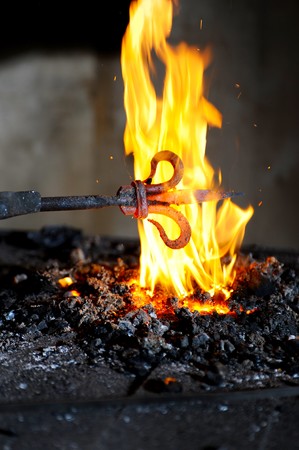A British Lens on Feng Shui: Bridging Centuries and Cultures
When one thinks of Feng Shui, visions of ancient Chinese wisdom, flowing energy, and carefully arranged interiors may spring to mind. Yet, beneath these Eastern roots lies a universal principle that quietly echoes through the heritage of Britain itself: the pursuit of harmony between people and place. For centuries, British culture has cherished the art of cultivating balance within its homes and landscapes, from the tranquil symmetry of Georgian architecture to the poetic embrace of nature in English country gardens. This shared reverence forms an unexpected bridge between East and West, inviting us to explore how the five elements—Wood, Fire, Earth, Metal, and Water—can be understood not only as cornerstones of Feng Shui but as timeless guides for crafting spaces where life flourishes. As we unveil these elements through a distinctly British lens, we discover that the quest for equilibrium is as much at home in a Cotswold cottage as it is in an imperial Chinese palace—a testament to the enduring human desire for environments that nurture both body and spirit.
2. Wood: Growth, Renewal, and the English Countryside
The Wood element in Feng Shui embodies vitality, growth, and fresh beginnings. It is the pulse of springtime, symbolising expansion and renewal. In the context of British culture, Wood finds a natural resonance with the nation’s enduring passion for lush gardens, rolling woodlands, and centuries-old traditions of cultivating green spaces. The English countryside, dotted with ancient oak groves and meticulously tended hedgerows, stands as a living testament to the value placed on nurturing nature.
The Role of Wood in Feng Shui and British Life
In Feng Shui, Wood is associated with upward movement and flexibility—qualities mirrored in Britain’s approach to landscape gardening and public parks. From Capability Brown’s sweeping vistas to the intimate charm of cottage gardens, the British have long celebrated the restorative powers of greenery. Integrating Wood into homes or outdoor spaces—through wooden furnishings, botanical motifs, or flourishing houseplants—encourages vitality and fosters a sense of harmonious renewal.
Comparing Feng Shui Wood Attributes with English Landscape Traditions
| Feng Shui Aspect | English Cultural Practice | Symbolic Connection |
|---|---|---|
| Growth & Expansion | Allotment gardening & woodland management | Nurturing new life and community spirit |
| Vitality & Health | Rambling through bluebell woods & nature reserves | Promoting well-being through connection with nature |
| Flexibility & Adaptation | Shaping landscapes to suit changing needs (e.g., rewilding projects) | Evolving with time while honouring tradition |
Practical Tips for Embracing the Wood Element at Home
- Introduce potted plants or vertical gardens to indoor spaces for an instant boost of vitality.
- Opt for wooden décor—such as oak tables or ash shelves—to bring warmth and natural texture.
- Create a reading nook near a window overlooking greenery to invite calming Wood energy into daily life.
- Embrace local flora by planting native trees or wildflowers in your garden, echoing the diversity of British landscapes.
The element of Wood not only enriches our surroundings aesthetically but also cultivates a spirit of renewal deeply embedded in both Feng Shui philosophy and the heart of English culture. By aligning our living spaces with these principles, we can nurture growth—both within ourselves and in the world around us.

3. Fire: Vitality and Hearth at the Heart of the Home
In Feng Shui, the element of Fire is revered for its transformative energy, symbolising passion, vitality, and illumination. This dynamic force not only enlivens spaces but also represents the emotional warmth that binds people together. Within the British context, Fire’s symbolism finds a natural home in the tradition of the hearth—once the literal and figurative centre of domestic life.
The classic British fireplace has long been more than just a source of heat; it stands as a beacon of comfort, gathering family and friends in its glow. The crackling fire in a Victorian townhouse or a countryside cottage evokes feelings of safety and conviviality, echoing Fire’s role in Feng Shui as the element that stimulates joy and connection.
Hospitality—offering tea by the fireside, sharing stories on chilly evenings—remains an enduring British custom. These rituals are steeped in both warmth and welcome, resonating with Fire’s core attributes: generosity, enthusiasm, and spirited engagement. By consciously integrating Fire elements into our homes—be it through candles, warm lighting, or even artwork depicting flames—we kindle this sense of vitality and openness.
In modern interiors, where open-plan living is increasingly favoured across the UK, creating a focal point reminiscent of the traditional hearth can still anchor communal spaces. Whether it’s a contemporary wood-burning stove or simply a cluster of glowing lanterns, these features honour both heritage and harmony. In essence, Fire bridges centuries-old customs with today’s lifestyles, ensuring that every home radiates both energy and welcome—a true heart within the British household.
4. Earth: Stability and the British Sense of Belonging
Among the five elements in Feng Shui, Earth stands as a symbol of stability, nourishment, and rootedness. In the context of British culture, these qualities resonate profoundly with the nation’s enduring connection to its countryside, allotment traditions, and local identity. Just as Earth in Feng Shui provides balance and a sense of home, so too does the British landscape offer its people a grounding force that shapes their daily lives and collective consciousness.
The Countryside: Britain’s Natural Anchor
The rolling hills of the Cotswolds, the rugged charm of the Lake District, and the tranquil expanse of the Scottish Highlands are more than picturesque backdrops—they are living embodiments of the Earth element. The British attachment to rural landscapes is not merely aesthetic; it forms an essential part of national identity. This deep connection is reflected in literature, art, and even public policy, where green belts and national parks are fiercely protected. The countryside becomes a sanctuary, offering stability in times of change—a tangible parallel to how Earth energy anchors spaces in Feng Shui practice.
Allotment Culture: Nurturing Roots
The tradition of allotment gardening is another manifestation of Earth’s influence within British society. Allotments—small plots leased for personal cultivation—have flourished since Victorian times, providing city dwellers with a patch of earth to call their own. These community spaces foster not only self-sufficiency but also a sense of belonging and shared purpose. The act of tending soil, planting seeds, and reaping harvests embodies both literal and metaphorical rooting—a practice that echoes Feng Shui’s emphasis on connecting with natural cycles for wellbeing.
British Attachment to Local Identity
The concept of being “rooted” extends beyond physical landscapes to encompass local customs and community spirit. From regional dialects to beloved village fêtes, Britons cherish traditions that anchor them to particular places. This celebration of locality mirrors the stabilising aspect of Earth in Feng Shui, which seeks to create environments where individuals feel secure and connected. Whether through supporting local markets or participating in neighbourhood events, these practices reinforce a collective sense of home.
Comparing Earth Element Qualities with British Cultural Practices
| Earth Element (Feng Shui) | British Cultural Practice | Shared Value |
|---|---|---|
| Stability & Grounding | Countryside preservation | Sustaining roots & constancy |
| Nourishment & Growth | Allotment gardening | Cultivation & self-reliance |
| Community & Belonging | Local identity traditions | Sense of belonging & unity |
This intrinsic relationship between the Earth element and British culture demonstrates how ancient wisdom can be freshly interpreted through modern lived experience. By recognising these parallels, we gain insight into both personal wellbeing and collective identity—each firmly grounded in a love for place, tradition, and community.
5. Metal: Refinement Through Craft and Character
In the philosophy of Feng Shui, the Metal element is revered for its association with clarity, precision, and refinement. These attributes echo deeply within British culture, where a tradition of meticulous craftsmanship has long been celebrated. From the gleaming artistry of historic silversmiths in Sheffield to the intricate metalwork adorning London’s Victorian railings and spires, the influence of Metal is woven into the very fabric of the nation’s heritage.
The Legacy of Silversmithing
British silversmithing stands as a testament to the Metal element’s virtues. For centuries, master craftsmen have transformed raw ore into objects of grace—whether stately tea sets or ceremonial trophies—each piece reflecting both technical skill and artistic vision. This tradition embodies Feng Shui’s belief that Metal brings not only beauty but also order and discernment to our lives.
Architectural Details: An Enduring Elegance
Across Britain’s cities and countryside, Metal’s presence is evident in architectural details both grand and subtle. The crisp lines of wrought-iron gates, elegant balconies, and even the iconic red telephone boxes all speak to a national appreciation for structure and finesse. Such elements are more than decorative; they channel Metal’s essence by creating a sense of clarity, security, and timeless sophistication.
Clarity in Modern Living
In contemporary British homes, incorporating Metal can mean choosing polished chrome fixtures, streamlined furniture, or cherished family heirlooms passed down through generations. By honouring both traditional craftsmanship and modern design, these touches invite clarity of mind and purpose—a key tenet of Feng Shui—into daily life. Thus, the spirit of refinement continues to shape British character just as it does the energies within our living spaces.
6. Water: Flow, Reflection, and the British Waterways
In the harmonious philosophy of Feng Shui, water is regarded as the lifeblood of energy—fluid, adaptable, and endlessly influential. This element symbolises wealth, wisdom, and the continuous flow of opportunities. In Britain, water’s influence is woven into the very fabric of its landscape and daily life. The gentle meandering of the River Thames through London, the intricate network of historic canals in Birmingham, and the ever-changing skies that bless—or beset—the countryside with rain all echo water’s significance in shaping both geography and culture.
The Vitality of Water in Feng Shui
Within traditional Feng Shui practice, water represents more than mere sustenance; it is a conduit for qi (energy), inviting abundance and clarity wherever it flows. Homes and gardens are carefully positioned to harness water’s beneficial effects, whether through a reflective pond or a tranquil fountain. The placement and movement of water are believed to attract prosperity and create balance within spaces—a principle that resonates with Britain’s own reverence for its waterways.
British Rivers: Lifelines Through History
From the Roman occupation to the Industrial Revolution, rivers have been instrumental in Britain’s development. They have served as trade routes, sources of power, and sites of community gathering. Today, walks along canal towpaths or afternoons spent boating on serene lakes capture an enduring appreciation for water’s calming presence. In this respect, British waterways mirror the Feng Shui ideal: facilitating movement, fostering connection, and nourishing the spirit of place.
Reflection and Renewal
Rainfall—a defining feature of British weather—invites reflection in both literal and metaphorical senses. It replenishes lush gardens and rolling hills while inspiring moments of quiet contemplation indoors. Just as Feng Shui encourages us to consider how water influences our environment, so too does British culture cherish rainy days as opportunities for renewal and introspection.
Ultimately, whether contemplating a still pond in a Chinese courtyard or strolling beside a misty riverbank in Oxfordshire, we are reminded that water is not only essential but transformative. It teaches us to adapt with grace and to embrace change as part of life’s natural flow—qualities deeply embedded in both Feng Shui tradition and the British way of life.

